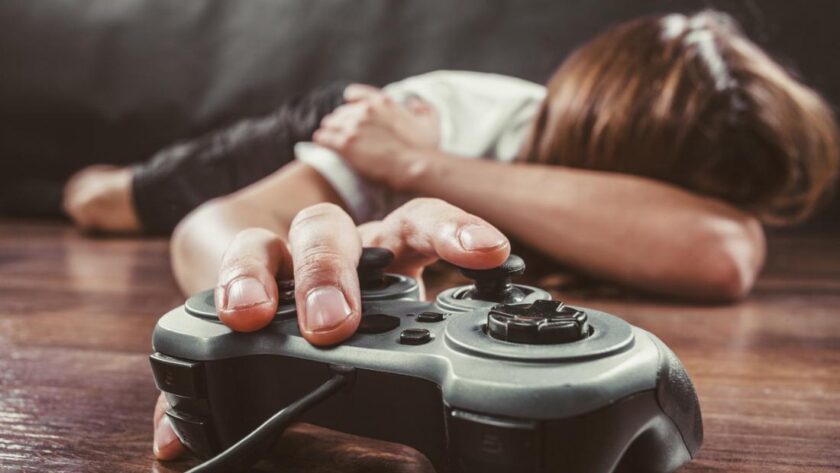Video games have evolved over the decades from simple pixelated screens to immersive, lifelike experiences, shaping the entertainment industry into a multi-billion-dollar phenomenon. Their influence is vast, spanning across social, educational, and psychological landscapes. While video games are often associated with fun, entertainment, and stress relief, they also come with significant impacts on both mental and physical health.
In this article, we will explore the various ways video games can impact mental and physical health, examining both the positive and negative effects. We will also provide insights into how players can maximize the benefits of gaming while mitigating any potential risks.
The Positive Impacts of Video Games on Mental and Physical Health
1. Enhancing Cognitive Function and Mental Agility
One of the most notable benefits of playing video games is the positive impact on cognitive functions, such as memory, attention, problem-solving skills, and decision-making. Video games, particularly action-oriented ones, require players to think quickly, make decisions under pressure, and adapt to constantly changing environments. These mental exercises can help improve brain function, cognitive flexibility, and concentration.
For instance, action games that require fast reflexes can improve hand-eye coordination, which is important not only for gaming but also for tasks like driving or typing. Additionally, puzzle games and strategy-based games promote critical thinking, planning, and resource management skills, which are transferable to real-life situations.
2. Stress Relief and Mental Health Benefits
Video games can also serve as a therapeutic tool for managing stress. Engaging in a favorite game can provide a temporary escape from the pressures of everyday life, offering players a chance to unwind and relieve tension. Many games, particularly casual or relaxation games, are designed to help players relax and focus their minds on calming, enjoyable tasks.
Studies have shown that video games can reduce stress levels by promoting relaxation and providing a mental distraction. For example, games with soothing music or slow-paced gameplay can trigger the body’s relaxation response, lowering heart rates and reducing feelings of anxiety or stress.
Moreover, role-playing games (RPGs) or games with rich narratives allow players to immerse themselves in different characters or worlds, offering a form of emotional escapism. By focusing on these digital environments, players can temporarily distance themselves from real-world issues and reduce feelings of anxiety or depression.
3. Improving Social Connections and Mental Health
Video games, particularly those that involve multiplayer and online gaming, have become a vital social tool. Online games allow individuals to connect, communicate, and collaborate with people from all over the world. For many, this creates a sense of belonging and community, especially for those who may feel isolated in their physical environments.
The social aspect of gaming can be especially helpful in reducing loneliness and combating social anxiety. Team-based games like Fortnite or World of Warcraft foster cooperative gameplay, where players must work together to achieve common goals. This sense of teamwork and camaraderie can build social skills, encourage cooperation, and even form lasting friendships.
In particular, games that incorporate voice communication allow players to engage in meaningful conversations with teammates or strangers, leading to social bonding and emotional support. This is especially beneficial for individuals who struggle with face-to-face interactions but find it easier to communicate online.
4. Physical Health Benefits Through Active Gaming
While video games have traditionally been seen as sedentary activities, active video games—such as those on platforms like the Nintendo Switch, Xbox Kinect, or PlayStation Move—have made significant strides in promoting physical activity. Games that require physical movement, like dance games, fitness games, and sports simulations, encourage players to get up, move, and exercise while having fun.
Active gaming has been found to improve cardiovascular health, boost metabolism, and increase overall physical activity levels. These games can also help improve balance, coordination, and muscle tone, making them an effective way to integrate exercise into a daily routine, especially for those who dislike traditional workouts.
Even simple activities like waving controllers, jumping, and squatting can provide moderate physical exercise that benefits heart health and promotes physical fitness.
The Negative Impacts of Video Games on Mental and Physical Health
1. Video Game Addiction and Mental Health Risks
While video games can offer many positive benefits, excessive gaming can lead to addiction. Video game addiction, also known as gaming disorder, is characterized by an obsession with gaming to the point that it interferes with daily life, work, and relationships. Individuals with gaming addiction may experience mood swings, irritability, and anxiety when they are unable to play, leading to a decrease in real-life social interactions and responsibilities.
According to the World Health Organization (WHO), gaming disorder is marked by impaired control over gaming behavior, increasing priority given to gaming over other activities, and the continuation of gaming despite negative consequences. This can result in decreased mental health, including feelings of isolation, depression, and anxiety.
Excessive gaming can also lead to poor sleep habits, as individuals often stay up late or neglect sleep in favor of gaming. This can negatively impact mental health and cognitive function, as sleep deprivation has been linked to increased stress, depression, and memory problems.
2. Physical Health Problems: Sedentary Lifestyle Risks
Despite the rise of active gaming, most video games are still sedentary by nature, requiring players to sit for long periods. Prolonged gaming sessions can contribute to several physical health problems, including obesity, poor posture, neck and back pain, and carpal tunnel syndrome.
A sedentary lifestyle, when combined with poor eating habits and lack of exercise, can contribute to weight gain, reduced cardiovascular health, and decreased physical fitness. Additionally, the repetitive motions of gaming can lead to injuries such as tendonitis, stress fractures, or muscle strain, especially in the hands, wrists, and shoulders.
To mitigate these physical risks, players should take regular breaks, stretch, and practice proper posture during gaming sessions. Incorporating exercise outside of gaming can also help maintain a healthier physical balance.
3. Negative Emotional Impact of Competitive Gaming
While competitive gaming can foster social connections, it can also have a negative emotional impact. The pressure to win, perform well, or maintain a certain ranking in online games can lead to stress, frustration, and burnout. The high-intensity nature of competitive gaming may also provoke negative emotions such as anger or aggression, especially in multiplayer settings where players may encounter toxic behavior.
A phenomenon known as toxic gaming refers to negative interactions between players, including cyberbullying, harassment, and verbal abuse. This behavior can have significant mental health effects on players, including anxiety, depression, and low self-esteem.
4. Sleep Disruptions from Video Gaming
One of the most significant negative impacts of video gaming on health is the disruption of sleep patterns. Engaging in video games, especially action-packed or violent ones, can increase adrenaline levels, making it harder for players to wind down before bed. The blue light emitted by screens can also interfere with the production of melatonin, the hormone responsible for regulating sleep cycles.
Late-night gaming sessions, particularly those involving intense games or online interactions, can lead to insomnia, poor sleep quality, and chronic fatigue. Over time, these disruptions can impact mental health and cognitive function, leading to decreased productivity and concentration during the day.
FAQs About Video Games and Health
- Can video games improve cognitive abilities? Yes, action, puzzle, and strategy games can improve memory, problem-solving skills, and reaction time.
- Are there benefits to playing video games for mental health? Video games can help relieve stress, improve mood, and provide emotional escape, but balance is key to avoid addiction.
- Can playing video games help with social connections? Multiplayer and online games foster social connections and communication, especially for individuals who may struggle with in-person interactions.
- How can video games affect physical health? While sedentary gaming can lead to health issues, active video games that require physical movement can improve cardiovascular health and muscle strength.
- What are the risks of excessive gaming? Excessive gaming can lead to addiction, poor sleep habits, social isolation, and physical health issues such as back pain or carpal tunnel syndrome.
- How can I avoid gaming addiction? Setting time limits, balancing gaming with other activities, and seeking support if gaming interferes with daily life can help prevent addiction.
- Do video games affect sleep? Yes, playing video games late at night can interfere with sleep patterns and cause insomnia or poor-quality sleep.
Conclusion
Video games, like any form of entertainment, have both positive and negative effects on mental and physical health. They can improve cognitive function, reduce stress, and provide social connections, but excessive or addictive gaming can have detrimental effects. The key to maintaining a healthy balance lies in moderation and ensuring that video gaming is part of a well-rounded lifestyle that includes physical activity, social interaction, and proper sleep.
Key Takeaways
- Video games can enhance cognitive abilities, such as memory and decision-making, and provide mental health benefits by reducing stress.
- Active video games promote physical activity and cardiovascular health, while sedentary gaming can lead to poor posture and health problems.
- Excessive gaming may lead to addiction, sleep disruptions, and negative emotional consequences, especially in competitive gaming.
- Moderation and healthy gaming habits, such as taking breaks and balancing screen time with physical exercise, are essential for maximizing the benefits and minimizing the risks of gaming.




